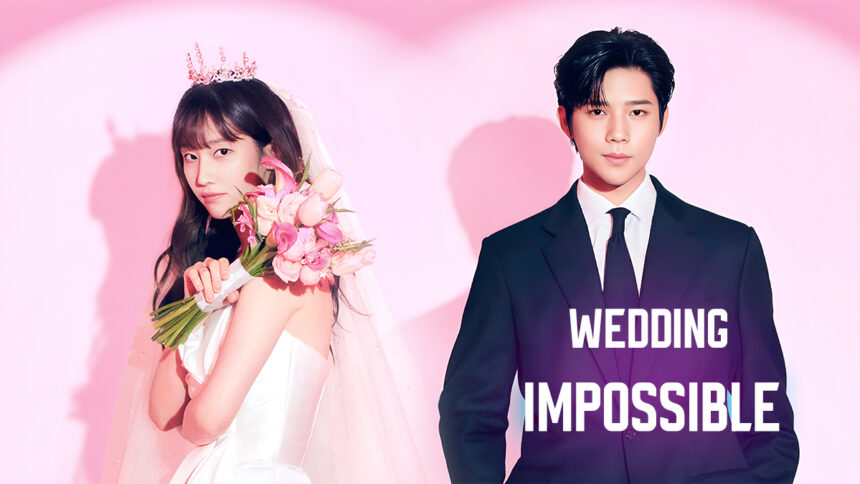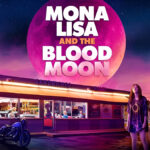Wedding Impossible, a romantic comedy brimming with emotional depth and unorthodox relationships, debuted in 2024 as one of South Korea’s most refreshing dramas of the year. Directed by Kwon Young-il and developed by Studio Dragon, the series captivated audiences with its sharp humor, engaging plot twists, and heartfelt performances. At the center of the tale is Na Ah-jeong, played by the versatile Jeon Jong-seo, a character who challenges societal norms while finding her voice in a world of power dynamics and pretense. With captivating performances and clever storytelling, Wedding Impossible stands out not just as a love story but also as a poignant exploration of identity, ambition, and acceptance.
Plot Overview
The series follows the tale of Na Ah-jeong (Jeon Jong-seo), a talented but struggling actress who has spent her career in relative obscurity, excelling in her craft yet failing to gain wider recognition. When her best friend Lee Do-han (Kim Do-wan), heir to the chaebol LJ Group, comes to her with a desperate proposal, her fairly ordinary life veers into unexpected territory. Do-han, a man hiding his homosexuality from his traditional and controlling family, proposes a sham marriage to Ah-jeong to protect his secret and appease his relatives pushing him to settle down.
Recognizing the temporary financial and career benefits of this arrangement, Ah-jeong reluctantly agrees. Together, the two weave a façade of marital bliss, but they soon face complications that unravel their plans. Do-han’s ambitious younger brother, Lee Ji-han (Moon Sang-min), grows suspicious of their relationship’s authenticity and sets out to expose the truth. Meanwhile, Ah-jeong’s own ambitions as an actress, coupled with her conflicting emotions, begin to complicate her pragmatic decision. The series unfolds as a blend of humorous escapades and heartfelt explorations of loneliness, self-discovery, and acceptance.
Na Ah-jeong’s Role and Character Significance
Na Ah-jeong isn’t your traditional romantic heroine. She’s ambitious, unapologetically straightforward, and deeply relatable as someone navigating life’s setbacks with grit and determination. Her character resonates with audiences struggling to reconcile professional goals with societal expectations, making her a modern, multi-dimensional figure in the backdrop of a genre often laden with clichés.
Empathy is a core aspect of Ah-jeong’s character. While she enters the contractual marriage for the benefits it provides, her involvement with Do-han soon becomes more than transactional. Through her proximity to the two chaebol brothers, she becomes an anchor point for emotional honesty, offering support to Do-han as he confronts his fears and challenging Ji-han’s assumptions about family and loyalty.
Ah-jeong also serves as a subtle critique of societal norms, where women are often pigeonholed into roles that don’t allow them to choose their own narratives. Her willingness to take on unconventional paths despite public scrutiny underlines the theme of personal agency.
Jeon Jong-seo’s Transformative Performance
Jeon Jong-seo’s portrayal of Na Ah-jeong is one of the pillars of Wedding Impossible’s success. Known for her intense, boundary-pushing performances in critically acclaimed projects like Burning (2018) and The Call (2020), Jeon adapts perfectly to this genre-defying romantic comedy. She imbues Ah-jeong with a perfect balance of vulnerability and confidence, making her both endearing and compelling.
Jeon’s chemistry with her co-stars elevates the narrative. Her interactions with Kim Do-wan (Do-han) carry a playful camaraderie, whereas her scenes with Moon Sang-min (Ji-han) bristle with tension and underlying sincerity. These dynamics help transform the standard romantic comedy beats into emotionally complex, character-driven moments.
Critics have lauded Jeon for her ability to seamlessly transition between comedic timing and moments of heartfelt poignancy. While Ah-jeong is an inherently witty character, her struggles with acceptance, career ambitions, and self-worth are brought to life with an emotional authenticity that only Jeon could deliver.
Director Kwon Young-il praised Jeon for bringing “a raw and unapologetic charm” to the role, a decision that greatly enhanced Ah-jeong’s relatability. This performance not only reaffirms Jeon’s reputation as one of South Korea’s most compelling screen actresses but also broadens her range by including romantic comedy in her repertoire.
Themes in Wedding Impossible
Wedding Impossible is far more than a romantic comedy; it uses humor and relationships to tackle deeper issues. Key themes include identity, acceptance, and breaking free from societal pressures. The series explores the complexity of human relationships, using the fake marriage premise to shine a light on authentic connections and trust.
Ah-jeong, in particular, embodies the theme of navigating independence amidst societal constraints. Her path toward self-validation as a woman and artist becomes an allegory for anyone who defies expectations to pursue authenticity.
Do-han’s struggles with his sexuality amid a conservative family and Ji-han’s eventual shifts in moral perspective further amplify the series’ focus on acceptance and self-discovery. Wedding Impossible is not afraid to critique systemic family structures and traditional expectations, offering a modern perspective on inclusivity and emotional resilience.
The setting of the chaebol world—with its opulence and intense familial scrutiny—acts as a stage for these broader themes, making the series both entertaining and relevant.
Critical Reception
Wedding Impossible garnered significant applause for its blend of humor, strong performances, and emotional depth. Critics appreciated the way the series brought fresh energy to a familiar genre while tackling issues often underexplored in romantic comedies.
Jeon Jong-seo’s portrayal of Na Ah-jeong was singled out as one of the standout elements. Critics praised her ability to carry the narrative with ease, noting that her performance gave depth and nuance to a character tasked with balancing humor and introspection. Likewise, the dynamic arcs between Jeon, Kim Do-wan, and Moon Sang-min were lauded for their emotional resonance, further lifting the series.
Fans also highlighted the series’ one-camera cinematography style and stellar screenplay as strengths. Music director Lim Ha-young’s score provided the perfect narrative underscoring, blending lighthearted tunes with melodically haunting notes to reflect the characters’ emotional journeys.
The series became popular across streaming platforms like TVING and Viki, cementing its place as a beloved title for international fans of South Korean dramas. Its popularity also led to discussions of inclusion and representation in modern storytelling, ensuring its cultural relevance beyond its broadcast.
Legacy of Wedding Impossible
With its clever writing and rich emotional tapestry, Wedding Impossible has set a benchmark for contemporary romantic comedies. More importantly, Jeon Jong-seo’s spirited portrayal of Na Ah-jeong adds a memorable and relatable heroine to the pantheon of strong female leads in K-drama history.
Na Ah-jeong’s character isn’t just about romance; she’s about carving out a space for oneself in a world stifled by expectations. Through her, Wedding Impossible (2024) delivers a poignant reminder that love, identity, and ambition are never impossible, even in the face of life’s most challenging decisions.
This series is a triumphant addition to the South Korean entertainment landscape, proving that romantic comedies can be both lighthearted and deeply impactful. Na Ah-jeong, brought vividly to life by Jeon Jong-seo, will leave a lasting impression on viewers for years to come.







